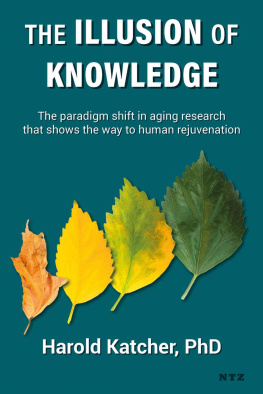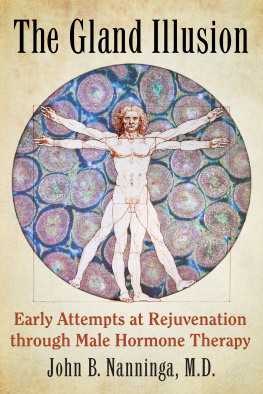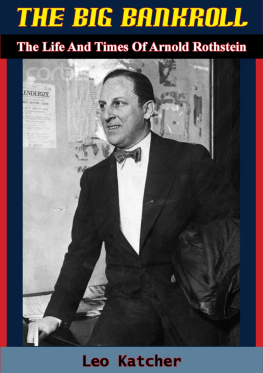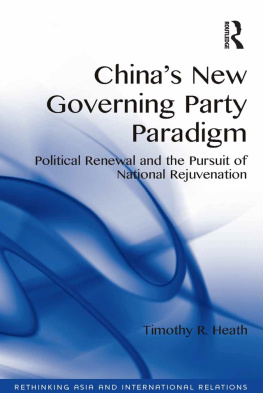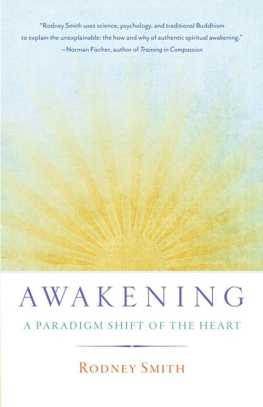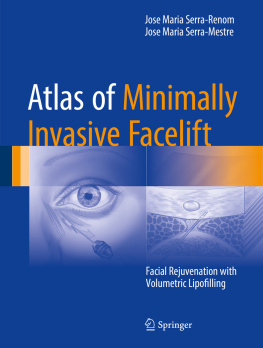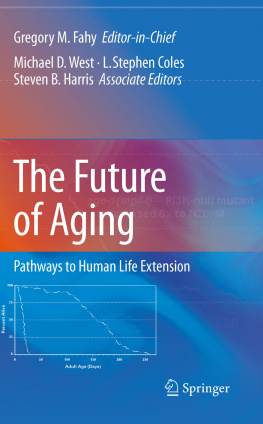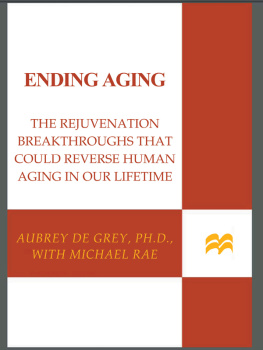Harold Katcher - The Illusion of Knowledge: The paradigm shift in aging research that shows the way to human rejuvenation
Here you can read online Harold Katcher - The Illusion of Knowledge: The paradigm shift in aging research that shows the way to human rejuvenation full text of the book (entire story) in english for free. Download pdf and epub, get meaning, cover and reviews about this ebook. year: 2021, publisher: NTZ, genre: Religion. Description of the work, (preface) as well as reviews are available. Best literature library LitArk.com created for fans of good reading and offers a wide selection of genres:
Romance novel
Science fiction
Adventure
Detective
Science
History
Home and family
Prose
Art
Politics
Computer
Non-fiction
Religion
Business
Children
Humor
Choose a favorite category and find really read worthwhile books. Enjoy immersion in the world of imagination, feel the emotions of the characters or learn something new for yourself, make an fascinating discovery.
- Book:The Illusion of Knowledge: The paradigm shift in aging research that shows the way to human rejuvenation
- Author:
- Publisher:NTZ
- Genre:
- Year:2021
- Rating:5 / 5
- Favourites:Add to favourites
- Your mark:
- 100
- 1
- 2
- 3
- 4
- 5
The Illusion of Knowledge: The paradigm shift in aging research that shows the way to human rejuvenation: summary, description and annotation
We offer to read an annotation, description, summary or preface (depends on what the author of the book "The Illusion of Knowledge: The paradigm shift in aging research that shows the way to human rejuvenation" wrote himself). If you haven't found the necessary information about the book — write in the comments, we will try to find it.
Harold Katcher: author's other books
Who wrote The Illusion of Knowledge: The paradigm shift in aging research that shows the way to human rejuvenation? Find out the surname, the name of the author of the book and a list of all author's works by series.
The Illusion of Knowledge: The paradigm shift in aging research that shows the way to human rejuvenation — read online for free the complete book (whole text) full work
Below is the text of the book, divided by pages. System saving the place of the last page read, allows you to conveniently read the book "The Illusion of Knowledge: The paradigm shift in aging research that shows the way to human rejuvenation" online for free, without having to search again every time where you left off. Put a bookmark, and you can go to the page where you finished reading at any time.
Font size:
Interval:
Bookmark:
The Illusion of Knowledge
Copyright 2021 by Harold Katcher
All rights reserved
The moral rights of the author have been asserted
Cover image by khak - stock.adobe.com
International Cataloging Data in Publication (CIP)
Angelica Ilacqua CRB-8/7057
Katcher, Harold
The illusion of knowledge [digital book] : the paradigm shift in aging research that shows the way to human rejuvenation / Harold Katcher. - Valinhos, SP : NTZ , 2021.
1,5 Mb ; ePUB
ISBN 978-85-54106-06-5 (e-book)
1. Biology 2. Celular aging 3. Rejuvenation I. Title
21-3343 CDD 611.018
Indexes for systematic catalog:
1. Biology
Published by NTZ
www.ntzplural.com
Valinhos/SP - Brazil
First edition
The paradigm shift in aging research that shows the way to human rejuvenation
Harold Katcher, PhD
NTZ
2021
The greatest enemy of knowledge is not ignorance; it is the illusion of knowledge.
Stephen Hawking
The recent discovery by our group of the ability to revert old rats to young convinces us that mammalian aging and that means human aging as well can be reversed, in a process known as rejuvenation (literally, re-youthening, a return to youth). I see this as the next step in human evolution, and like most human evolution, it involves an increase in our powers not through biological evolution, which is far too slow, but through knowledge, translated into technology. And yet, while every old person would like to be young again smarter, stronger, more virile or fertile what might the actual benefit to society be? Having taught Biology of Aging for years, I know that the majority of my students dont see rejuvenation as a benefit, but as a burden, because, surely, if you can rejuvenate people, you could add decades to their lives, and then the question that worries us most comes to the fore: overpopulation. Most of my students, as they signed up for a course on the biology of aging, were interested in the subject, and even in anti-aging medicine, but their desire was not for physical immortality and eternal youth (although some had such a desire indeed) they simply wanted to live what is a long healthy life for about 100 years and die peacefully in their sleep.
At the time of writing this, still relatively near the beginning of the 21st century, the huge baby boom that occurred as troops returned home when World War II ended produced a big bulge in populations across the globe. People born during this time were referred to as the Baby Boomer Generation or simply boomers. Those boomers, a large and comparatively wealthy generation of people, have entered into senescence (i.e., old age), and some have realized that the comfort that money and status brought them in their earlier lives meant little when they discovered that the promise of their golden years (their reward for a lifetime of hard work and accomplishment) was a lie. Accomplishments and learning meant little except fond (and perhaps disappearing) memories. And why is it a lie? Because now that you have the time, you no longer have the energy. Your golden years are a time when mind and body become sources of pain and loss, and the future only bodes worse to come before the end.
Even though the search for immortality has always been a preoccupation of those that have everything else (for it is commonly known that you cant take it with you), our comparative wealth nowadays created a different picture, as even the poor in most countries have entertainment (via cell phones, TVs, etc.) that Emperor Alexander couldnt imagine, and in the richest countries even the poor often have air-conditioning and the ability to make trips that would have taken Alexander weeks or months in mere hours. These increases in our wealth and abilities are the result of our increasing knowledge our science.
The widespread interest by the now aging boomers has led to the creation of major blockbuster drugs produced by the pharmaceutical industry such as statins, metformin and ACE-inhibitors for treating the diseases of aging, but which require life-long use. And as aging itself is not considered a disease by the Food and Drug Administration (FDA) of the USA (and by the equivalent government bodies around the world), a supplement or nutraceutical industry outside mainstream medicine was born, based on the aging theory du jour. Multi-vitamins, particularly anti-oxidants (some totally valueless when ingested, like SOD, an enzyme that is digested like any other protein), dedicated to anti-aging treatment are not regulated in the USA by the FDA, as these supplements are generally regarded as safe.
The pharmaceutical industry produces drugs that do ease or delay the deficits and diseases of aging drugs based on known science. It has had some accomplishments: the risk of various diseases of aging has been reduced; some cancers, once untreatable, now have high remission rates; statins and ACE inhibitors lower bad cholesterol and blood pressure, respectively, preventing or ameliorating heart and artery disease; we have metformin which helps to take care of type 2 diabetes and gives its users a longer-than-average lifespan.
Nevertheless, current science hasnt produced significant increases in human lifespan, though the average lifespan has been increased considerably, as, at the turn of the 20th century, the average lifespan in the USA was close to 40 years and is now close to 80 years. This is because the average lifespan includes all those deaths from bacterial diseases, once our major killers (plague and tuberculosis), which are mostly prevented by proper sanitation rather than antibiotics. However, as Ill discuss later in this book, scientists have been able to extend the lifespan of non-primate mammals by a significant fraction of their lifespan and have been able to increase the lifespan of some invertebrates several-fold.
At this time, perhaps for the first time in history, we have produced medications, though with side-effects, that can ameliorate and extend our lives (even if they mostly ameliorate and extend our senescence, as theyre generally employed by people who are in or close to senescence), increasing our average lifespans, but only a bit yet, life is precious to many, no matter their condition.
The explanations most biologists give for the processes controlling aging and lifespan length are based on years of brilliant theoretical and experimental work during the mid-to-late 20th century. The result of these myriad efforts was a commonsense explanation of aging, a previously mysterious and unaccounted for attribute of life, that could now be understood by anyone: Things fall apart; or in more scientific language: entropy. In the context of aging, entropy means the inevitable accumulation of random (stochastic is the fancy word for it) damages that gradually overwhelm the ability of our cells to repair them, and our cells age and die in consequence. So, in this analogy, your body is like your automobile: yes, you take good care of it, but there was that stone you didnt see that damaged your transmission, that rust spreading beneath the paint on your door, the constant wearing of pistons and cylinders. Yes, you could replace every warn and defective part if you had the replacements, and the money, but that would just be throwing your money away and you have other needs, and obtaining those new parts would be expensive. So, the best you can do is try to prevent damage from happening and repair it when it does, though you know that damage is inevitable.
To extend the analogy, the better your car was built initially (your genetics), and the better it was taken care of (your diet, exercise regime and prudence), the longer it will function. Modern science metaphorically developed some fuel additives, some synthetic lubricants and radiator sealants to keep the old engine from wearing out too quickly, but the prospect of significant extension of life is small, and barely worth the effort to most (myself included, and even Leonard Hayflick, the man who convinced us that cells themselves are mortal at least when grown in vitro [in glass, rather than in vivo in animals]). their view of aging is still based on what has been called the Wear and Tear theories of aging (the random occurrence and accumulation of damage to vital cellular structures that is unrepaired or unrepairable by the body), and they have little to show for their efforts. The reason for this is simple these theories have something in common with most commonsensical theories about the world (such as the Sun circles the Earth once a day): they are wrong.
Font size:
Interval:
Bookmark:
Similar books «The Illusion of Knowledge: The paradigm shift in aging research that shows the way to human rejuvenation»
Look at similar books to The Illusion of Knowledge: The paradigm shift in aging research that shows the way to human rejuvenation. We have selected literature similar in name and meaning in the hope of providing readers with more options to find new, interesting, not yet read works.
Discussion, reviews of the book The Illusion of Knowledge: The paradigm shift in aging research that shows the way to human rejuvenation and just readers' own opinions. Leave your comments, write what you think about the work, its meaning or the main characters. Specify what exactly you liked and what you didn't like, and why you think so.

